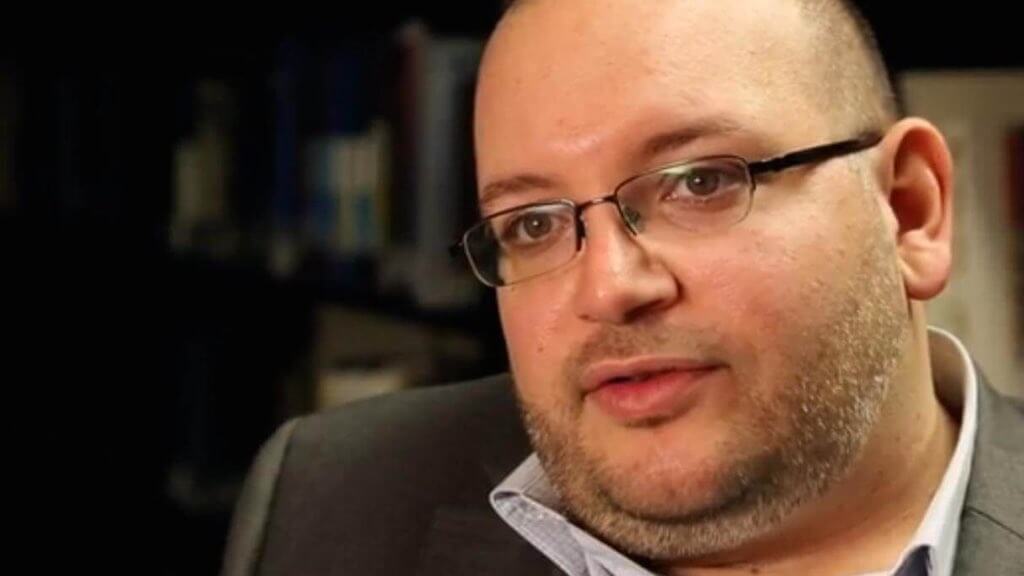As Washington Post journalist Jason Rezaian passed his 500th day in captivity in Iran last month, three high-ranking public-media figures wondered what they could do to help. Michael Oreskes, NPR’s senior vice president of news and editorial director, Frontline executive producer Raney Aronson-Rath, and PBS NewsHour executive producer Sara Just decided to draft a letter to Secretary of State John Kerry on Rezaian’s behalf.
Rezaian was arrested in July 2014 while on assignment in Tehran, where he’s been the Post‘s correspondent since 2012. Iran has never specified the charges against him, though his lawyer says one included espionage, and the country has given no details about the prison term to which it sentenced him last November.
Oreskes says that for some in public broadcasting, “the Washington Post is our hometown paper.” (Both NPR and NewsHour are based in the Washington area.) But their concern about Rezaian’s well-being goes beyond the local connection–or even Rezaian’s case, as many news organizations have reporters stationed in locations unfriendly to journalistic freedom. “This is a pretty rough time in the world for journalists,” Oreskes says, “And I personally and NPR have been concerned about the state of free expression in the world.”
Oreskes, Just, and Aronson-Rath decided to draft a letter to Kerry, “but then we thought, we know just about all the major leaders in news organizations around the country,” he says. “Why don’t we see what we can organize?” Oreskes says he wrote the first draft, then took suggestions from Associated Press Executive Editor Kathleen Carroll and New Yorker Editor David Remnick on its final form. “We had pretty good editors there!” Oreskes says.
In the end, 25 top editors signed the letter, including New York Times Executive Editor Dean Baquet, Politico Editor Susan Glasser, Bloomberg Editor-in-Chief John Micklethwait, Vice News Editor-in-Chief Jason Mojica, and BuzzFeed Editor-in-Chief Ben Smith.
Oreskes says they may have had more people sign, but they decided to get the letter out on Friday, a day after Kerry said Iran could be “days away” from complying with the nuclear deal it signed with the US last year. With the completion of the deal, Oreskes says, the US “has a bit more than normal levels of leverage” and should push Iran to free Rezaian. When CBS News reporter Major Garrett asked President Obama in a conference last year why he hadn’t done more to free Rezaian and three other Americans held in Iran while working on the deal, Obama replied that making them part of the negotiations would have given the Iranians more leverage.
“We’d like to see President Obama speak up and demand his return and the US press hard for his return,” Oreskes says. “They’ve found ways to get others out, and we’d like to see that happen here.” (On Saturday, the State Department said it planned to respond “as appropriate” to the letter.)
No one from the Washington Post is on the letter–Oreskes says they told Post Executive Editor Martin Baron what they were doing, “but we didn’t ask him to sign it; we thought it was important for this to come from the rest of the journalistic community.”
“We’re immensely grateful for the support provided by so many leading news executives,” Baron writes in an email. “With reporters working at great risk around the world, they know that Jason’s fate has implications for their own correspondents. This letter makes clear that our profession stands united in demanding that Jason’s long and tragic ordeal in Iran be brought to an end. It also makes clear that we all expect the U.S. government to do everything in its power to secure the freedom of American journalists when, as in Jason’s case, they have been unjustly imprisoned.”
Oreskes says Baron told him he thought Rezaian’s wife and mother would be able to let him know about the show of support. “If nothing else, he knows that we’re all thinking about him and fighting for him,” he says.


















